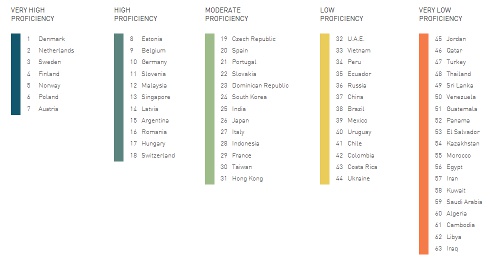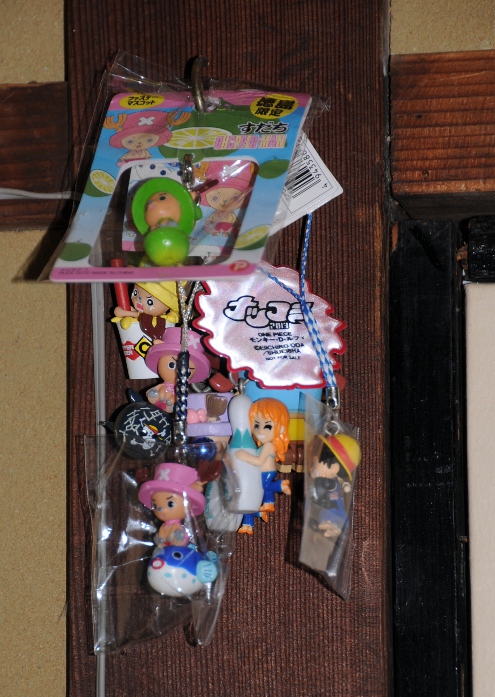I’m not feeling well, I am very tired for no obvious reason. Today, I slept almost all day, and I’m glad that it’s not too hot at the moment. My energy is very low and has been since my return from Korea. At least I know it’s not kimchi related this time. Hopefully this – whatever it is – will pass soon…
Category: Uncategorized
Earth Day
 Today, April 22nd, is Earth Day, and many events take place worldwide to support the environment and its protection, or at least raise awareness in that respect. I am not aware of any local events here in Kyoto, so I did not participate in anything, although there may have been some in Tokyo or in other large cities around Japan.
Today, April 22nd, is Earth Day, and many events take place worldwide to support the environment and its protection, or at least raise awareness in that respect. I am not aware of any local events here in Kyoto, so I did not participate in anything, although there may have been some in Tokyo or in other large cities around Japan.
However, I tried the Ecological Footprint Calculator on the Earth Day homepage. You have to choose the country where you live (or the one closest to it) before you start calculating, because obviously, your footprint not only depends on your own actions, but also on societal factors that are a bit harder to influence for the average citizen.
I did two different calculations, one for Switzerland, as a central European, and the one for Japan. Interestingly, the questions are very different in both calculators, for example there was a large section on recycling for Switzerland, which did not feature in the Japanese one at all. In both there was the question “How much of your food is produced locally?”, which I found a very tough one to answer. I mean, I know that the rice I eat is definitely Japanese, but even the Japanese chocolate I consume so much of is made from imported cocoa beans… The strangest thing I encountered in the Japanese questionnaire was the question for the size of your home. Apparently, the average Japanese lives on something between 150 and 200 m^2 – that can’t be right, surely?
Anyway, me living in Japan means that my lifestyle would consume 1.8 Earths if everyone did it that way (the calculation for Switzerland gives a result of 2.4 Earths). How large is your footprint?
Forex
It’s finally done and over: My house in Austria is sold. Well, in fact it was sold last year in June, but because of a notary who did not work quite as fast as he could have, because of some considerable back-and-forth that lasted about half a year, only now I was legally able to get the money. I then had to wait for some other assets of mine to be realised, and finally, this weekend I have transferred the whole amount to Japan.
 With the exchange rate where it is right now and the fact that Japanese Yen have two more zeros than the Euro in general, I am feeling very rich right now. Very rich indeed, my account is showing millions right now. However, I’m still by far not rich enough to buy that house I have talked about a few weeks ago, but I think I can start dreaming of something. Right now, I prefer not to buy anyway, but maybe 5 years down the road…
With the exchange rate where it is right now and the fact that Japanese Yen have two more zeros than the Euro in general, I am feeling very rich right now. Very rich indeed, my account is showing millions right now. However, I’m still by far not rich enough to buy that house I have talked about a few weeks ago, but I think I can start dreaming of something. Right now, I prefer not to buy anyway, but maybe 5 years down the road…
However, had the whole transaction been finalised last week, I would have gotten even more money out of the transfer, but with the Euro essentially in free fall since the beginning of this year (thanks Angela!), I think I should be happy to have gained that much just by changing my Euro to Yen. Isn’t it interesting that when you already have a lot, you still crave for more?
Happy New Year!
Christmas!
Headache
Sorry guys, no big post here today. I had an appointment in Osaka and came home dead tired and with a headache… Now that I have finished all my emails, I’m off to bed. It’s getting colder too this week – I have seen some days reaching the zero degrees – but I still have a few blankets to throw on the bed if need be. Good night!
Proficiency
I have stumbled across a brand new study that examined the average English proficiency of adults in more than 60 countries that are not English native speaking (obviously).
There are five levels, ranging from very high – high – moderate – low – to very low proficiency. As was to be expected, Europe takes the cake, the seven countries that have very high proficiency in English are all European ones, starting with Denmark, The Netherlands and the other Scandinavian states on top, followed by a quite surprising Poland – and, on the seventh spot: Austria! 
This surprised me quite a lot to be honest, I always had the impression that the average Austrian’s English-speaking capability was not that good at all. Although, I have to admit that several people who have travelled to Austria – even to the more rural spots – have assured me they got by fine without knowing any German. Maybe things have changed since I left?
Similarly surprising was the ranking of Japan on place 26 with moderate proficiency. I also thought that this was a bit overenthusiastic, but I have to admit that many Japanese understand English very well, and their grammar is excellent – they just don’t speak English. Interestingly the study states that not much had changed in Japan in the last seven years, when the first such study was conducted.
Of course, these kind of studies always have to be taken with a grain of salt. With this one, you need lots of grains: Nowhere on the site that I linked to above does it say how “proficiency” is measured, and what it takes to have a very high or very low one. Also they said they only tested adults (over 19 years of age) who had internet access (which accounts for a complete lack of central and south African countries) and who were somehow interested in learning (more) English already.
Anyway, it’s fun to check out this page (click on the spotlights to see each country’s individual score) and there is even a way to participate in the test – which takes only 50 minutes… Maybe the right thing to do on a slow weekend?
Remnants
People are leaving Japan all around me.
When I woke up today and went downstairs, I noticed the open door opposite of my room. This was the room of the most long-term resident of Ebisu’s who had apparently left early in the morning without me noticing. Never before have I seen it open, it felt strange. Never before had I seen his room, so I went and had a peek. It was odd, seeing it so empty, so devoid of everything he had been. Just a pile of futons and sheets in one corner, a table in another, the tatami tattered at places. Curtains and windows were open just as the door, not much left that could be traced to him personally, only these hanging on a nail:  He had lived at Ebisu’s for more than five years, he was here all the time I had been here, and now he returned to Europe. He knew so much about Kyoto and Japan, showed me the ropes in my first weeks, told me where to get what,… Whenever I had a problem he would be there to solve it – except my personal problems with spiders and cockroaches, I needed to do that by myself. I am not sure whether I’d call him simply a housemate or a friend – I’m very picky with this title though – but I liked him a lot and we had nice and deep conversations about all sorts of stuff. This is why it is odd to say: I miss him already, but it is true, besides that, Ebisu’s feels different now with that one corner room empty… I’m sorry I was too late and could not say goodbye in person – have a great time back home, I’ll see you when you’re returning to Kyoto, soon, hopefully!
He had lived at Ebisu’s for more than five years, he was here all the time I had been here, and now he returned to Europe. He knew so much about Kyoto and Japan, showed me the ropes in my first weeks, told me where to get what,… Whenever I had a problem he would be there to solve it – except my personal problems with spiders and cockroaches, I needed to do that by myself. I am not sure whether I’d call him simply a housemate or a friend – I’m very picky with this title though – but I liked him a lot and we had nice and deep conversations about all sorts of stuff. This is why it is odd to say: I miss him already, but it is true, besides that, Ebisu’s feels different now with that one corner room empty… I’m sorry I was too late and could not say goodbye in person – have a great time back home, I’ll see you when you’re returning to Kyoto, soon, hopefully!
Other people are moving too. My friends from Kobe, whom I visited just two weekends ago, returned to Austria today. Thanks for all the books guys, take care!
Tomorrow another one of my housemates will leave. She was only here for three months, but she was really nice to be with. Today we went to a really nice sushi restaurant, her first and last time to have decent sushi in Japan. We both enjoyed it greatly and I hope she’ll be back some day for more. Thanks for your biscuit cake recipe!
Visitor
Barack Obama has visited Japan for a couple of days, and, nothing much has happened. In truly political fashion, hands were shaken and bows made, places were visited and banquets held, and press conferences were given. In between, allegedly, there was even time for serious business talks, but, as I said, nothing much happened.
The trade treaty between Japan and the US is still at a standstill (I’m rather glad about this as I am not eager to eat American crap); the US has confirmed that they will still come to Japan’s aid should they be attacked by anyone (meaning: China, in case they stop their verbal threats and start doing something more serious about a couple of islands nobody except a handful of politicians really care about); and I’m sure some things were carefully kept under the rug they have been swept and not mentioned at all (Fukushima, Yasukuni…)
So, nothing much happened. Obama has today moved on to Korea and is probably already busy repeating the Japanese experience there. Nothing much happening nowhere where politicians are involved…
Abbr.
My Japanese is moving slowly but steadily forward. I am trying to speak a bit more and keep learning Kanji – it is indeed true, after a while, not all of them look the same anymore.
What keeps tripping me up are the Katakana though. There are no rules as to how to turn a foreign word into Katakana, and unless a word is very common, I guess different people will come up with a different katakanisation of a word, especially when it comes to names. Some words are written according to how they are pronounced, others are written according to how they a written originally, and others still are changed completely. My favourite example of the latter is the French word for cream puff “choux á la creme” which ends up as ” シュークリーム – shoo kureemu” in Japanese… To be fair, writing French with Katakana is all but impossible…
It does not help in the least that Japanese love to abbreviate words, to shorten long Kanji compounds and often, to simply make up new words this way. This is relatively easy when the word can be written with Kanji, for example Kyoto University is written “京都大学 – Kyoto Daigaku” and the abbreviation takes the first and third Kanji to create “Kyodai”. Foreign loanwords on the other hand are a completely different animal… The German word “Arbeit” is directly turned into Katakana “アルバイト”, its meaning changes from “work” to “part time job”, but the Japanese, not content leaving it there, often shorten it further to “バイト – baito”. Similarly shortened are “パソコン – pasocon” for personal computer, “コンビニ – konbini” for convenience store, or “ノンアル – nonaru” for non-alcoholic.
So far, the most interesting combination of Kanji, Katakana, and an undecipherable abbreviation I found on a box of tissues, where the Kanji means nose:
“鼻セレブ – nose serubu”
Nose – self? Nose – sarp? Nose…?? After a long – very long indeed – trial period I finally caved in, admitted defeat and asked for help. It turned out that the Katakana stand for the abbreviation of an English word, and mean celeb(rity), and “Nose – celeb” is an advertisement for especially soft tissues… Well, at least I know now why learning Japanese goes ever so slowly…


